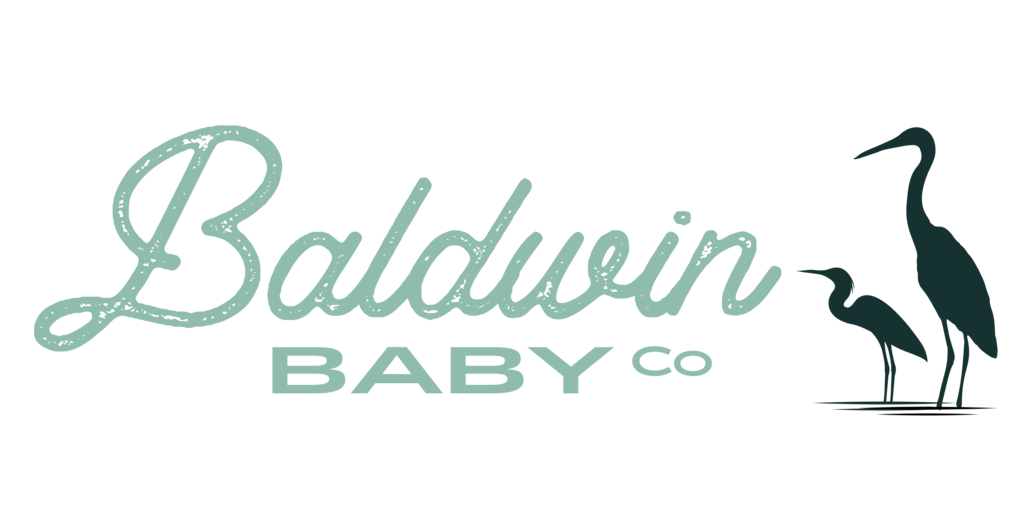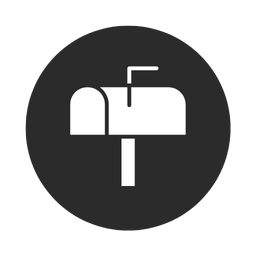
Postpartum Recovery Essentials: What New Moms Really Need
Key Points
- The fourth trimester is a critical recovery phase where new moms experience both physical healing and emotional adjustments, making rest and support essential.
- Physical recovery essentials like perineal care, sitz baths, and supportive garments help ease pain, reduce swelling, and promote faster healing.
- Emotional and mental well-being play a vital role in postpartum recovery, with mindfulness practices, journaling, and support groups helping to reduce stress and prevent isolation.
- Nutrition and hydration are foundational for healing, with easy, nutrient-dense snacks, postpartum vitamins, and adequate fluids supporting both recovery and breastfeeding.
- A personalized postpartum recovery plan ensures smoother healing, combining self-care, organization, and a strong support network tailored to each mother’s unique needs.
The journey into motherhood is transformative—but it comes with its unique challenges, especially during the postpartum period. After your baby arrives, your body and mind embark on a critical healing process. Postpartum recovery isn’t solely about physical healing; it’s about nurturing emotional well-being, re-establishing your routine, and ensuring you have the right support during this delicate time. In this comprehensive guide, we explore expert postpartum recovery essentials and practical strategies to help new moms regain strength and confidence.
Understanding the Postpartum Recovery Phase
What to Expect During the Fourth Trimester
The postpartum period, often referred to as the “fourth trimester,” is an extension of your pregnancy journey where your body, mind, and spirit continue to adjust after birth. This period—typically the first three months after delivery—is a critical time for healing and bonding with your newborn. Here’s a closer look at what the fourth trimester entails:
Physical Changes and Recovery
During the fourth trimester, your body is still in a state of transition. Even though your baby is finally home, your body is working hard to recover from the rigors of childbirth. Some common physical changes include:
-
Uterine Involution:
Your uterus is gradually shrinking back to its pre-pregnancy size. This process, known as uterine involution, can cause mild cramping similar to menstrual cramps. -
Lochia:
Expect vaginal bleeding (lochia), which is the discharge of blood, mucus, and tissue from the uterus. This normal part of healing can last for several weeks. -
Perineal Healing:
Whether you had a vaginal delivery or underwent an episiotomy, your perineal area needs time to heal. Soreness, swelling, and bruising are common, and gentle care with ice packs and sitz baths can make a big difference. -
Breast Changes:
If you’re breastfeeding, your breasts may become engorged initially, and you might experience fluctuations in milk supply. Nursing support items like comfortable bras and nipple creams can help manage these changes. -
Abdominal and Muscular Recovery:
Your abdominal muscles, which stretched during pregnancy, will gradually regain strength. A supportive postpartum belly binder may provide gentle compression and support during this process.

Emotional and Mental Adjustments
The fourth trimester is as much an emotional transition as it is a physical one. New mothers often experience a range of emotions during this time:
-
Hormonal Fluctuations:
Dramatic shifts in hormones after childbirth can lead to mood swings, baby blues, or even postpartum depression. Recognizing these changes and seeking support early on is essential. -
Identity and Role Transition:
Adjusting to the new role of motherhood can be both exhilarating and overwhelming. Many moms find themselves redefining their identity as they balance the demands of caring for a newborn with their personal needs. -
Sleep Deprivation:
With your newborn’s unpredictable sleep patterns, you may struggle with severe sleep deprivation. This lack of sleep can intensify feelings of fatigue and stress, making rest and self-care indispensable.
Personal Story: Embracing the Fourth Trimester
One new mom, Sarah, recalls her fourth trimester as a period of both exhaustion and profound connection. “I remember feeling overwhelmed by the constant fatigue, but every time I held my baby, I was reminded that this was the beginning of something incredible,” she shares. Sarah made it a point to carve out even five minutes each day for herself—whether through a short walk or a quiet moment with a cup of herbal tea. Her experience underscores that embracing the fourth trimester is about finding balance amid the chaos and celebrating small victories every day.
Tips for Navigating the Fourth Trimester
Embracing the fourth trimester as a time of gradual healing and adjustment can set the stage for a smoother recovery. Consider these strategies:
-
Create a Calm Environment:
Designate a quiet, comfortable space in your home for rest and relaxation. Soft lighting, soothing music, and aromatherapy can help create a peaceful atmosphere. -
Prioritize Self-Care:
Even though caring for your newborn is demanding, setting aside moments for yourself is critical. Whether it’s a few minutes of meditation, a warm bath, or enjoying a cup of herbal tea, these small acts can replenish your energy. -
Seek Support:
Connect with other new moms through support groups or online communities. Sharing your experiences and challenges can provide both emotional comfort and practical advice. -
Set Realistic Expectations:
Understand that the fourth trimester is a period of adjustment, and it’s perfectly normal to have ups and downs. Celebrate small victories and be patient with yourself as you navigate this transformative time. -
Document Your Journey:
Keeping a journal or photo diary of your fourth-trimester experiences can help track your progress and serve as a beautiful reminder of your strength and resilience.
Embracing the fourth trimester means giving yourself permission to heal at your own pace while savoring the early moments with your baby. By understanding and adapting to the changes during this time, you lay the foundation for a sustainable recovery and a fulfilling journey into motherhood.
Physical Recovery Essentials
Physical healing is the cornerstone of postpartum recovery. The following essentials are designed to support your body as it mends and regains strength.
Perineal and Wound Care for Postpartum Healing
Proper perineal care is vital, especially if you experienced tearing or had an episiotomy.
-
Perineal Ice Packs & Cold Compresses:
Cold therapy reduces swelling and numbs pain. Reusable ice packs with soft covers are popular for their comfort and efficacy. -
Witch Hazel Pads:
These disposable pads, infused with natural witch hazel, soothe irritated skin and reduce inflammation. They are an effective, hygienic option for daily use. -
Sitz Bath Kits:
A sitz bath allows you to soak the perineal area in warm water, promoting healing and easing discomfort. Portable, inflatable kits make this process convenient at home. -
Topical Ointments:
Specialized creams provide targeted relief for soreness and minor wounds. Always consult your healthcare provider for safe product recommendations.
Pain Management and Support Tools
Managing pain is critical to a smooth recovery process.
-
Over-the-Counter Pain Relievers:
Medications such as ibuprofen or acetaminophen help alleviate pain and reduce inflammation. Follow your doctor’s dosage recommendations carefully. -
Heating Pads:
Heating pads offer warm relief for abdominal cramps and muscle soreness. Their gentle warmth can provide comfort on tough days. -
Specialized Recovery Devices:
Some moms benefit from using TENS units (transcutaneous electrical nerve stimulation) for pain management. Consult your healthcare provider to see if this option fits your needs.
Comfortable Clothing and Supportive Wear
Choosing the right apparel supports both healing and ease of access during feedings.
-
Postpartum Underwear and High-Absorbency Pads:
Invest in soft, breathable postpartum underwear and high-absorbency pads designed specifically for lochia management. -
Nursing Bras and Support Garments:
Supportive, comfortable nursing bras with adjustable straps and easy-to-use nursing clips are essential. A postpartum belly band or wrap can provide gentle abdominal support. -
Loungewear and Pajamas:
Opt for loose, soft loungewear and pajamas with front openings for convenient breastfeeding. Prioritize fabrics that are gentle on sensitive skin.

Emotional and Mental Recovery Essentials
Healing after childbirth encompasses emotional and mental well-being. The following tools and practices can help nurture your inner self during this transformative time.
Self-Care Tools and Practices
-
Mindfulness and Relaxation Apps:
Use apps offering guided meditations, postpartum yoga routines, and breathing exercises to reduce stress and improve mental clarity. Even short sessions can yield significant benefits. -
Comfort Items:
Simple comforts like a cozy blanket, soft slippers, or a favorite book provide emotional solace during challenging moments. -
Journaling and Recovery Diaries:
Documenting your thoughts, emotions, and milestones in a journal or photo diary can be therapeutic. This record not only aids in emotional healing but also serves as a cherished keepsake of your journey.
Building a Robust Support Network
-
Peer Support Groups:
Connecting with other new moms through local or online support groups offers valuable emotional backing and practical advice. Sharing experiences helps reduce feelings of isolation. -
Professional Counseling:
If mood swings, anxiety, or depression persist, consider seeking professional postpartum counseling. A therapist can offer strategies tailored to your emotional needs. -
Family and Friends:
Lean on your loved ones for support, whether it’s help with baby care or simply a listening ear. A strong support network can significantly ease the transition.
Nutritional and Hydration Essentials
Proper nutrition and hydration are fundamental for postpartum recovery, fueling your healing process and supporting breastfeeding.
Nourishing Your Body
-
Postpartum Vitamins and Supplements:
Continue taking prenatal vitamins or switch to a postpartum formula to replenish nutrients lost during childbirth. Iron supplements might be necessary if you experienced significant blood loss—always consult your doctor for advice. -
Nutritious, Easy-to-Eat Snacks:
Keep healthy snacks like fruits, nuts, yogurt, and granola bars on hand. These nutrient-dense options provide quick energy and help maintain balanced nutrition. -
Meal Planning and Prep:
Use meal delivery services or prepare freezer meals in advance. Having nutritious meals readily available minimizes the stress of cooking and supports your recovery.
Hydration Essentials
-
Large Water Bottles with Infusers:
A durable, reusable water bottle encourages regular hydration. Infuser options let you add natural flavors like lemon or berries, making it more appealing to drink throughout the day. -
Herbal Teas:
Non-caffeinated teas, such as chamomile or peppermint, soothe your mind and body. They are a relaxing addition to your self-care routine and help ensure you stay hydrated.
Practical Tools for Daily Postpartum Recovery
In addition to healing and self-care products, practical tools can streamline daily tasks and create a supportive environment for your recovery.
Organizational Tools and Daily Essentials
-
Hospital/Recovery Bag:
Prepare a dedicated bag with all your postpartum essentials—comfortable clothing, toiletries, pain relievers, and snacks. This bag is invaluable during your hospital stay and the early days at home. -
Organized Recovery Kit:
Consolidate your key recovery items into one accessible kit. Keeping your healing aids, nutritional supplements, and comfort items together reduces stress and saves time. -
Meal Delivery and Prep Services:
Utilize meal delivery services or pre-cooked freezer meals to ease the burden of cooking. This extra support allows you to focus on recovery and bonding with your newborn.
Creating a Calming Home Environment
A peaceful home environment can significantly boost your recovery process.
-
Designated Recovery Area:
Set up a quiet, comfortable space dedicated solely to your recovery. This area should be free from clutter and stocked with your essential items, helping you relax and recharge. -
Decluttering and Organization:
A tidy, well-organized home reduces stress and makes daily tasks more manageable. Use storage bins and labels to keep baby care items and recovery tools neatly arranged. -
Relaxation Aids:
Incorporate aromatherapy diffusers, essential oil blends, and soft lighting to create a calming atmosphere. Weighted blankets and supportive pillows can further enhance your comfort during rest.
Creating Your Personalized Postpartum Recovery Plan
Every new mom’s experience is unique, so your recovery plan should be tailored to your specific physical, emotional, and lifestyle needs.
Assess Your Needs
Begin by evaluating your priorities:
-
Physical Needs:
Consider your recovery process—do you require extra pain relief, specialized garments, or particular healing aids? Identify which items are most essential for your comfort. -
Emotional Needs:
Reflect on your support network and mental health. Determine if regular counseling, mindfulness practices, or joining support groups could improve your recovery. -
Lifestyle Considerations:
Factor in your daily routines and responsibilities. Whether you’re managing other children or juggling work-from-home challenges, prioritize strategies that save time and energy.
Set Realistic Goals
Divide your recovery plan into achievable objectives:
-
Short-Term Goals:
Focus on immediate needs—managing pain, staying hydrated, and setting up a comfortable recovery environment. -
Long-Term Goals:
Think about how you want your recovery to evolve. Consider establishing a sustainable self-care routine that includes regular exercise, meditation, or creative pursuits as you adjust to motherhood.
Embrace Flexibility
Recovery is not a linear process, and it’s normal to have ups and downs:
-
Adjust Your Routine:
Be willing to modify your plan as needed. If certain strategies aren’t working, try new approaches. -
Keep Essentials Accessible:
Maintain a well-stocked recovery kit so that on challenging days, you have immediate access to your critical items. -
Review Regularly:
Schedule periodic check-ins to assess your progress and update your plan based on your evolving needs.
Expert Tips for a Smooth Postpartum Journey
Beyond the right products, these expert tips can help you navigate the complexities of postpartum recovery and the fourth trimester.
Listen to Your Body
-
Prioritize Rest:
Accept that your body is healing and give yourself permission to rest. Prioritize sleep and downtime over non-essential tasks. -
Follow Medical Advice:
Keep in touch with your healthcare provider and adhere to their recommendations regarding activity levels, diet, and medications. Trust that their guidance is tailored to your unique recovery journey.
Stay Connected and Seek Support
-
Communicate Openly:
Share your needs and challenges with your partner, family, or friends. Open communication can reduce stress and foster a supportive environment. -
Join a Community:
Engage with other new moms through local support groups or online communities. Peer support provides practical advice and emotional reassurance. -
Consider Professional Counseling:
If feelings of depression or anxiety persist, don’t hesitate to seek professional help. Postpartum counseling can offer tailored strategies for managing your emotions.
Embrace Self-Compassion
-
Celebrate Small Victories:
Recognize that each day of recovery, no matter how small, is a success. Celebrate your progress and be kind to yourself. -
Adjust Your Expectations:
Understand that some days will be more challenging than others. Embrace flexibility and give yourself permission to have an off day.
Additional Considerations for Diverse Experiences
Every postpartum journey is unique. Here are tailored tips for specific situations:
For Moms with Cesarean Deliveries
-
Extra Wound Care:
Use specialized abdominal binders or supportive garments to ease tension on your incision. Follow your doctor’s instructions carefully for wound care. -
Gentle Movement:
Engage in light activities, such as short walks, to promote circulation without straining your healing tissues. -
Enhanced Support:
Don’t hesitate to ask for extra help with household tasks. Post-cesarean recovery may require additional support from your loved ones.
For Breastfeeding Moms
-
Nursing Supplies:
Ensure you have comfortable, easy-to-clean nursing bras, breast pads, and nipple cream. A reliable breast pump can be invaluable if you plan to pump. -
Hydration:
Breastfeeding increases your hydration needs. Keep a water bottle nearby and consider electrolyte-rich drinks to replenish fluids. -
Quiet, Private Space:
Create a comfortable area for breastfeeding that’s quiet and distraction-free, enhancing your relaxation and focus.
For Moms Balancing Multiple Responsibilities
-
Time Management Tools:
Use planners or digital calendars to schedule both self-care and household tasks. Efficient time management can reduce stress and help you stay organized. -
Delegation:
Don’t hesitate to delegate tasks to your partner, family, or friends. Building a strong support network is essential when balancing multiple responsibilities. -
Streamlined Essentials:
Focus on a core set of recovery items that offer the most benefit. Avoid an overly extensive checklist that might add unnecessary stress.
FAQs on Postpartum Recovery Essentials
Q: How long does postpartum recovery usually take?
A: Recovery varies from person to person. While physical healing may take several weeks to months, emotional recovery can extend longer. It’s important to be patient and allow yourself time to adjust.
Q: Can I use both digital and physical methods for preserving postpartum memories?
A: Absolutely. A hybrid approach is recommended—keep the most sentimental items physically and digitize the rest to save space and ensure long-term preservation.
Q: How do I know if I need professional postpartum counseling?
A: If you experience persistent feelings of sadness, anxiety, or hopelessness that interfere with daily functioning, it may be time to seek professional help. Don’t hesitate to consult a mental health professional.
Q: What are some effective time-saving strategies for new moms during recovery?
A: Meal delivery services, pre-prepared freezer meals, and delegating household tasks can save time and energy. Prioritize self-care and set up a comfortable recovery space to streamline your routine.
Q: Are there specific recovery tips for moms who had cesarean deliveries?
A: Yes. Post-cesarean recovery often requires extra wound care and gentle movement. Supportive garments, light activity, and additional help from family or friends can significantly ease the process.
Q: What are some self-care practices to help manage postpartum anxiety?
A: Incorporating mindfulness, using relaxation apps, journaling, and seeking support from peers or professionals can help manage anxiety and boost emotional well-being.
Your Journey Ahead
Postpartum recovery is a multifaceted journey that encompasses physical healing, emotional well-being, and significant lifestyle adjustments. Whether you choose a minimalist approach—focusing on a select few essential items—or prefer an extensive recovery toolkit, the goal is to create an environment that nurtures both your body and mind.
By assembling a thoughtful collection of postpartum recovery essentials—from perineal care and pain management to emotional self-care and nutritional support—you can ease the challenges of recovery and focus on what truly matters: bonding with your new baby and rediscovering your strength.
Remember, there is no single “right” way to recover after childbirth. Your needs will evolve, and your recovery plan should be flexible enough to adapt. Experiment with different strategies, listen to your body, and be kind to yourself during this transformative time.
Share your postpartum recovery essentials and tips in the comments below. What items or practices have made the biggest difference in your recovery journey? Your insights can inspire and help other new moms navigate this transformative period.
By integrating comprehensive strategies, expert advice, and personalized insights, you’ll be well-equipped to embrace the postpartum period with confidence, care, and resilience. Here’s to a smooth, empowered, and joyful recovery—one day at a time.









